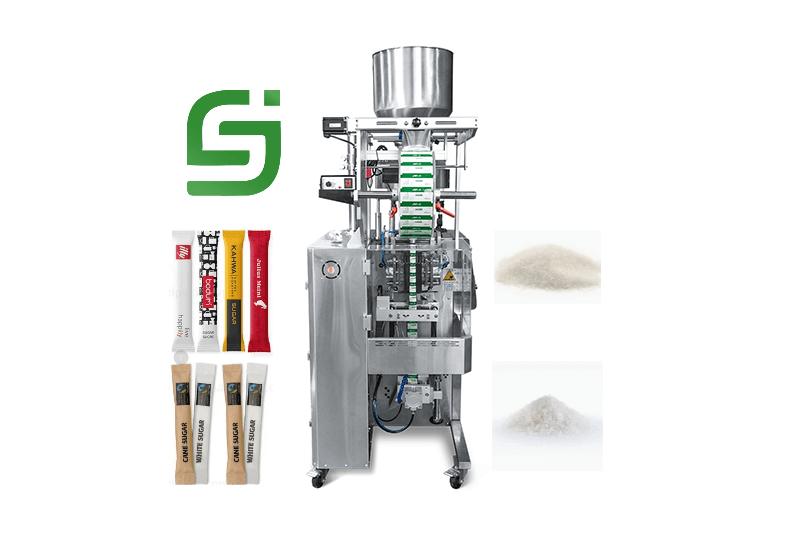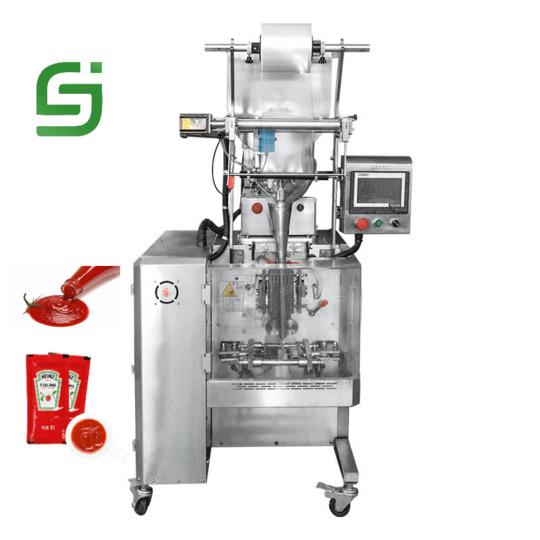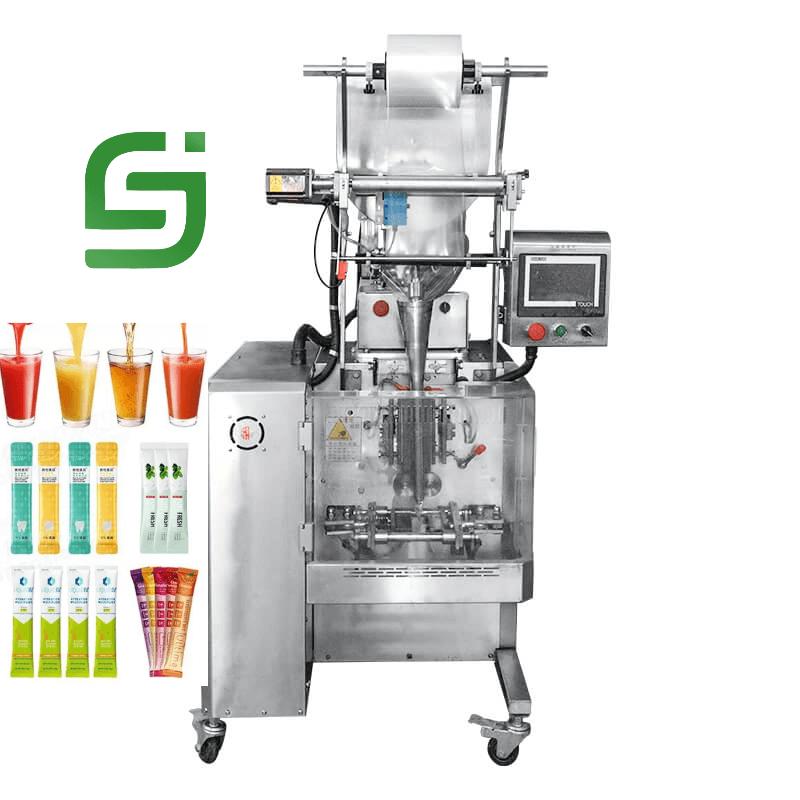Author:YISEN Pouch Packing Machine Manufacturer TIME:2024-11-07
Granule packaging machines are essential in various industries, including food, pharmaceuticals, and chemicals. These machines facilitate the efficient and accurate packaging of granular products, ensuring that they remain fresh and uncontaminated. However, like any machinery, granule packaging machines can encounter faults that disrupt operations. Understanding these common issues and their solutions is crucial for maintaining productivity and minimizing downtime. In this article, we will explore several typical faults associated with granule packaging machines and provide effective solutions to address them.
One of the most common issues faced by granule packaging machines is inconsistent filling accuracy. This can lead to underfilling or overfilling of packages, resulting in product wastage and customer dissatisfaction.
Several factors can contribute to this problem. One primary reason might be the wear and tear of the filling mechanism, which may require calibration or replacement. Additionally, variations in granule size can affect the flow rate, causing inconsistencies in filling.
To resolve this issue, regular maintenance and calibration of the filling system are essential. Operators should also ensure that the granules are of uniform size and quality. Implementing an automatic feedback system can help monitor and adjust filling volumes in real-time, enhancing accuracy.
Seal integrity is critical in packaging, particularly for products with a limited shelf life. Faulty seals can lead to contamination and spoilage of the product. Common causes of seal integrity issues include improper sealing temperature, insufficient pressure, or worn-out sealing components.
To address this fault, operators should regularly check the sealing temperature and pressure settings to ensure they are within the recommended range. Periodic inspection and replacement of sealing elements, such as bars and films, are also necessary to maintain effective seals. Conducting seal tests can help identify weak seals before products reach consumers.

Jamming and blockages are frequent problems in granule packaging machines, often caused by irregularities in the granule size or moisture content. If the granules are too moist or sticky, they can clump together, leading to blockages in the feeding system.
To mitigate this issue, it is crucial to control the moisture content of the granules before packaging. Regular cleaning of the machine's feeding components can also prevent buildup that leads to jamming. Additionally, installing a vibrating feeder can help improve the flow of granules, reducing the likelihood of blockages.
Electrical failures can halt the operation of granule packaging machines, resulting in significant downtime. These failures may stem from faulty wiring, blown fuses, or malfunctioning sensors.
To minimize the risk of electrical problems, it is vital to conduct regular inspections of the electrical components. Ensure that all wiring is secure and free from damage. Installing surge protectors and using high-quality electrical components can also enhance reliability. In case of failure, having a trained technician on hand to diagnose and repair issues promptly can help restore operations quickly.
Modern granule packaging machines often rely on sophisticated software for operation. Software malfunctions can cause miscommunication between components, leading to operational errors.
To address software issues, operators should ensure that the software is regularly updated to the latest version. It is also beneficial to have backup systems in place to restore functionality quickly in case of failure. Training personnel on troubleshooting software-related issues can further reduce downtime and maintain efficient operations.

Neglecting regular maintenance can lead to various faults in granule packaging machines. Without proper upkeep, components can wear out prematurely, resulting in frequent breakdowns and costly repairs.
Establishing a routine maintenance schedule is crucial for the longevity of the equipment. This schedule should include cleaning, lubricating moving parts, and inspecting key components for signs of wear. Training staff on the importance of maintenance and providing them with the necessary tools can help ensure that the machinery operates smoothly and efficiently.
Operator errors can significantly impact the performance of granule packaging machines. Incorrect settings or improper handling can lead to faults that affect production quality and efficiency.
To minimize operator errors, comprehensive training programs should be implemented for all personnel involved in the operation of the machinery. Clear operating procedures and guidelines should also be provided to ensure that all operators understand how to use the equipment correctly. Regular refresher courses can help maintain high standards of operation.

Granule packaging machines play a vital role in various industries, but they are not without their challenges. By understanding common faults and implementing effective solutions, operators can ensure that these machines run efficiently and produce high-quality results. Regular maintenance, proper training, and timely interventions are key to preventing issues and maintaining the integrity of the packaging process. With attention to detail and proactive management, businesses can optimize their packaging operations and enhance overall productivity.